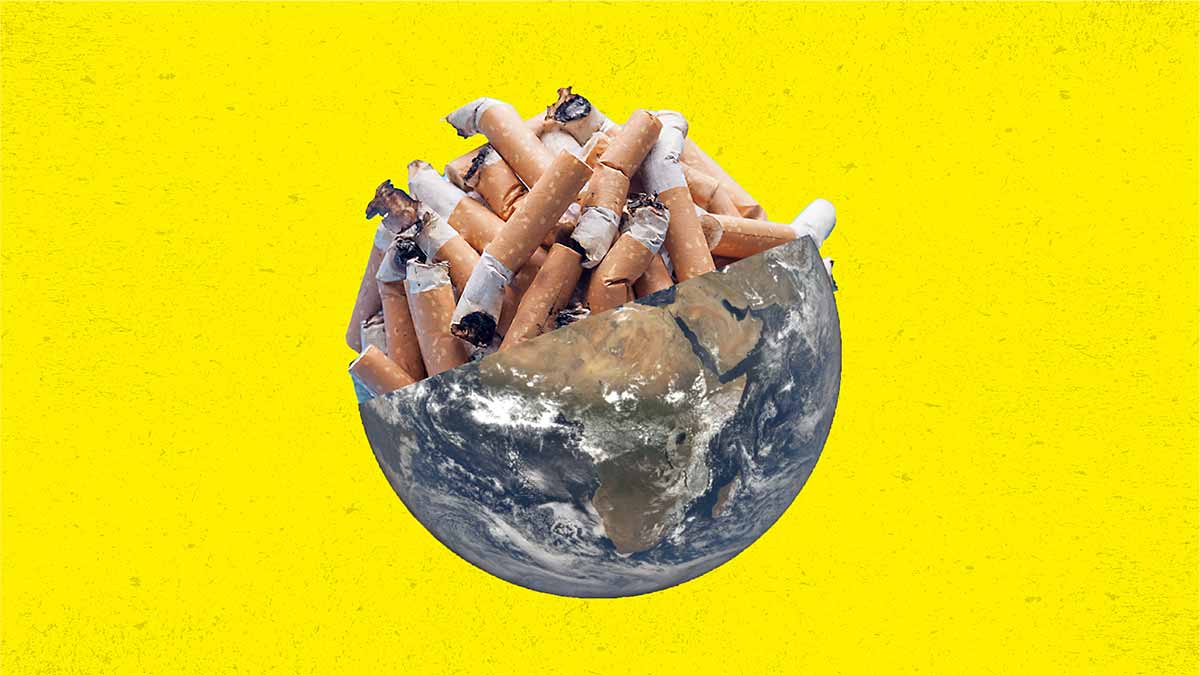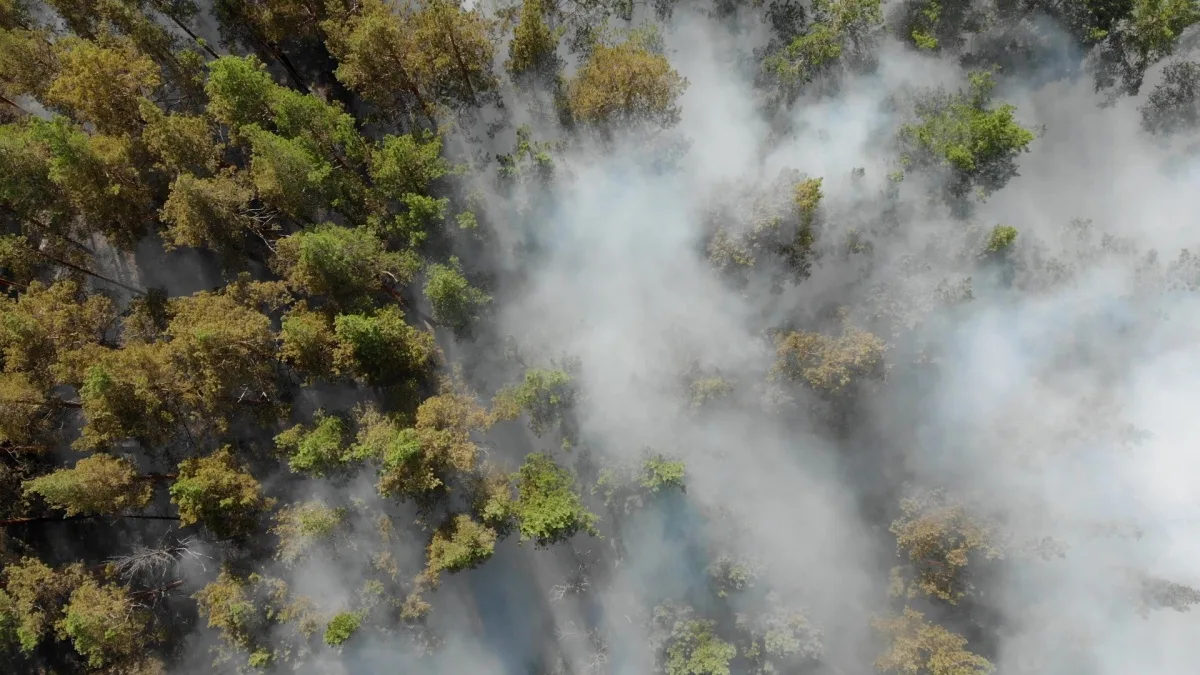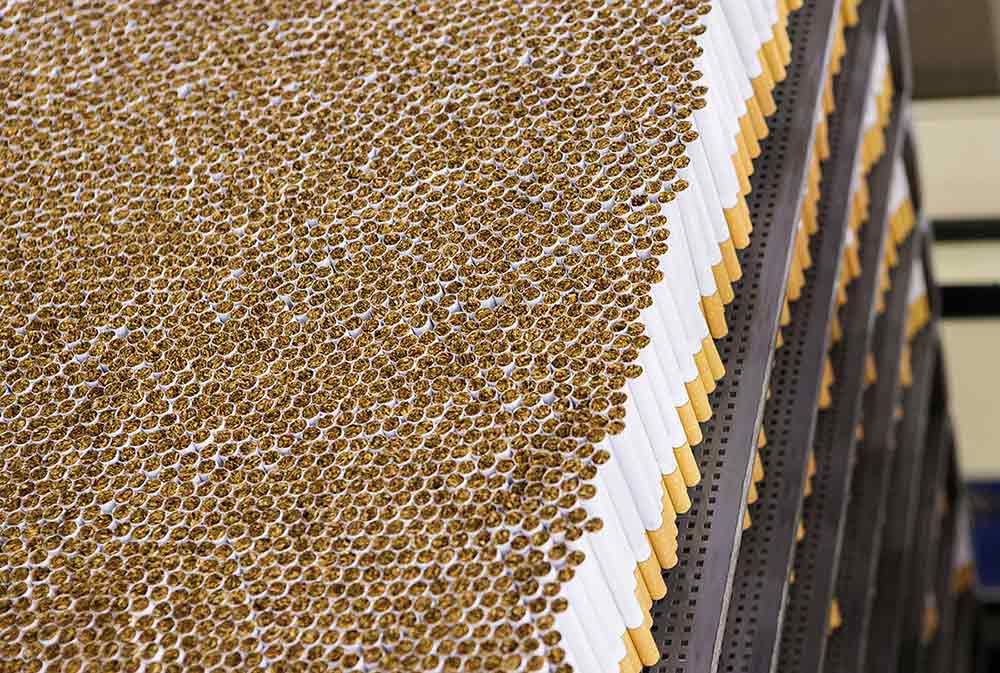- Resources
- News
-
-
Get Email Updates
Sign up for STOP's emails and never miss an update on our latest work and the tobacco industry's activity.
-
Get Funding
Ready to tackle industry interference? You could be eligible for a grant.
-
Share a Tip
Do you have information on tobacco industry misconduct in your country? Let us know.
-
Get Email Updates
Environment
May 13, 2022

Event Coincides with the Launch of a New WHO/STOP Report on Tobacco Industry ‘Greenwashing’
(Geneva and New York, May 13, 2022)—At an online event yesterday, hosted by World Health Organization (WHO), the FCTC Secretariat and tobacco industry watchdog, STOP, global experts discussed the tobacco industry’s damage to the planet, efforts to cover it up and how the industry can be held accountable. The event is a precursor to World No Tobacco Day on May 31, which focuses on the environment as another reason to quit or never start using tobacco and nicotine products. A new report criticizing the industry’s misleading ‘green’ PR was also published.
Highlights included:
- WHO Director of Health Promotion, Rüdiger Krech’s introduction included key data about the industry’s environmental harm, such as its responsibility for five percent of global deforestation and that researchers found partially digested cigarette butts in 70 percent of sea birds and 30 percent of sea turtles sampled.
- Maria Neira, WHO Director, Environment, Climate Change and Health stressed that destroying the environment is bad for health: “Imagine: one quarter of mortality around the world (13 million deaths) could be prevented if we were friendlier to the environment and stopped destroying nature. Whatever tobacco is already doing, being so bad for our health, if you add the damage it is doing to the environment, it’s an additional reason why we need to stop using, consuming, and producing tobacco.”
- The head of the FCTC Secretariat, Adriana Blanco Marquizo, questioned environmental awards given to tobacco companies: “The people who award them don’t see the big picture. Every year the tobacco industry produces a total of 84 million tonnes of CO2—similar or even bigger than some small and medium countries. This is not a small contribution to the problem, it’s a substantive contribution. There is a specific mandate in the WHO FCTC (that obliges countries) to pay due regard to the problems of the environment.”
- STOP expert Andy Rowell, Senior Researcher with the Tobacco Control Research Group at the University of Bath, called out industry greenwashing: “The tobacco industry is trying to tell you it’s becoming sustainable, becoming green. Do not believe the spin. Tobacco kills one in two long term users, it’s also killing the planet. Its ecological impact is roughly equivalent to one of the large oil companies. We talk about big oil causing climate change, but we don’t talk about the tobacco industry. And the industry’s new products have batteries, single use plastics – we’re going to have a new generation of dangerous, toxic waste.”
- Kevin Genga, a Kenyan environmental advocate, spoke passionately about how tobacco growing led to deforestation, soil degradation and rivers drying up, while tobacco farmers work without adequate protection for a precarious livelihood: “I’m educating farmers about alternative means of farming, that is less harmful to the environment, that will give them food that is nutritious, that is not causing harm like tobacco. It can take at least six months for the land to recover so farmers can plant other crops. Many can’t afford that delay. I’m also promoting reforestation activities so that we reclaim the glory of the land we had before tobacco. So we leave a planet that is safe for future generations.”
- Raquel Fernández Megina of Nofumadores.org highlighted a new tactic from Philip Morris International: encouraging tourist destinations to apply for an accreditation to call themselves “smokefree,” while the company promotes its new products. But the scheme made no difference: “The island (La Graciosa) had its certification but people were smoking everywhere, you could see butts everywhere.” Spain’s Ministry of Health instructed the certifying organization, TÜV Austria, to remove an erroneous claim that the certification complied with Ministry guidelines, according to Cristina Gómez-Chacón Galán, who commented: “The main lesson learned is that it’s important to be attentive to the industry’s greenwashing and to react to it in a unanimous and forceful way.”
- Panellists discussed countering the industry’s narrative, especially in tobacco-growing countries, that it is economically beneficial. Badri Narayanan shared research on Tanzania, which estimates that CO2 emissions could be reduced by approximately 0.7 percent across the economy if the WHO FCTC was implemented. “Any losses (to the tobacco industry) can be offset by gains in other sectors, including health and environmental benefits. Forest land covered could increase by 0.2 percent. We could have an increase in the production of crops. The economic benefits can be positive.”
- Several panellists spoke about how the tobacco industry could be held accountable. Emmanuelle Béguinot from Comité National Contre le Tabagisme explained that France adopted legislation extending producer liability, in line with a European directive to reduce the impact of plastic on the environment. “For tobacco products, the purpose is to reduce the number of discarded cigarettes by 40 percent by 2027. The principle adopted is that the polluter must pay. The industry must pay cities for the cost of cleaning up cigarette butts.”
- Oluwafemi Akinbode of Corporate Accountability and Public Participation Africa noted that “We concentrate on the health impacts of tobacco, we need to expand our liability framework and look at the instruments available in our countries to hold tobacco companies accountable.” In Nigeria, litigation against Shell in the Niger Delta offers a possible template. “We need to build a strong connection between the climate change movement and the tobacco control movement. We have the scientific evidence that the tobacco companies are a major contributor to climate change, so we need to hold them accountable at the local, national and international level.”
- Dianita Sugiyo from Indonesia’s Muhammadiyah Steps explained that around 200,000 hectares of fertile arable land are being degraded by tobacco cultivation and cigarette butts are the greatest single source of litter found along the country’s beautiful coastline. “It’s a really serious problem. It’s not only about the land, it’s also the harm to human health, especially for children risking green tobacco sickness, working on tobacco plantations. Indoor air pollution is also still a huge problem, requiring better enforcement.” Tobacco companies Sampoerna (Philip Morris International’s Indonesian subsidiary) and Djarum actively use CSR programs to mask this harm.
- Summing up, moderator Armando Pergua concluded that more needs to be done to help the public understand tobacco’s environmental harm; that we need to increase connections between environmentalists and the health and tobacco control communities; and that it’s time to hold the industry accountable.
A recording of the event is available to view online.
Please contact the STOP press office for more information about this event, to arrange an interview with one of the speakers, or to speak to a STOP spokesperson.
About STOP (Stopping Tobacco Organizations and Products)
STOP is a global tobacco industry watchdog whose mission is to expose the tobacco industry strategies and tactics that undermine public health. STOP is funded by Bloomberg Philanthropies and comprised of a partnership among The Tobacco Control Research Group at the University of Bath, The Global Center for Good Governance in Tobacco Control (GGTC), the International Union Against Tuberculosis and Lung Disease (The Union) and Vital Strategies. For more information, visit exposetobacco.org.


